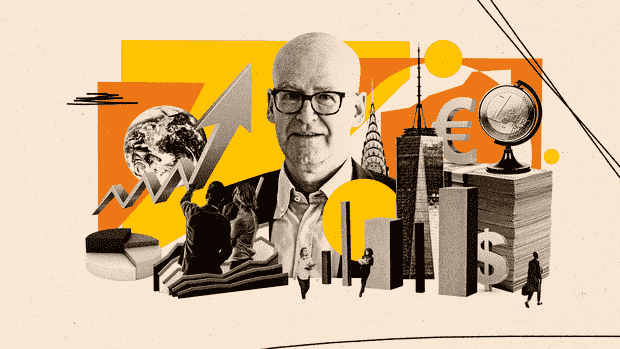Handelsblatt author Thomas Hanke analyzes interesting data and trends from all over the world in the column.
(Photo: Klawe Rzeczy)
Europe suffers a drought crisis. As reported by the EU’s Joint Research Center, lack of precipitation and heat have “taken half of Europe to the alarm threshold”. Under the lurid title “Worst drought in 500 years” – a comparison that does not appear in the report – the drought warning startled Europe from north to south.
We stare in disbelief at our desertifying continent, as if nobody saw it coming. Dramatic changes were pointed out early on. Between 1950 and 2000, Spain lost around 15 percent of its long-term average amount of precipitation, Portugal almost half.
Central Europe, including Germany, also suffers from dehydration. “A significant part of Europe is already affected by water abstraction in excess of available supplies, and current trends point to increasing water stress,” the EU’s Court of Auditors warned last year. Agriculture is particularly stressed: cereals and vegetables dry up, the cattle can no longer find enough fodder on the pastures.
As early as 2000, the EU passed its Water Framework Directive. It obliges the member states to make all users of the increasingly scarce resource share in all costs, according to the principle: the polluter pays.
Top jobs of the day
Find the best jobs now and
be notified by email.
Also agriculture. “The excessive abstraction of water for irrigation purposes – including illegal abstraction – is a serious problem in the EU, especially in many river basins of the Mediterranean Sea,” the text reads. In 2015 the problem should be fixed.
Even Germany does not save enough water
Instead it got worse. Water has become even scarcer. Agriculture is suffering, but it is also a perpetrator. And that for decades. But most of the Member States examined by the EU Court of Auditors are not taking sufficient steps to save water.
Neither does Germany: In eleven of the 16 federal states, agriculture can use it completely free of charge, regardless of whether it is groundwater or surface water. The situation is similar in other countries, including those in the particularly hard-hit Mediterranean region.
In Germany this may still be bearable, here agriculture consumes only 1.2 percent of the total withdrawal. But in Greece, farmers divert four-fifths of the water they withdraw, in Portugal it’s just a little less and in Spain it’s 65 percent – if the official figures are to be believed and if you ignore the 500,000 illegal wells the World Bank is talking about.
Irrigated areas have increased massively since the 1960s. In Spain they have more than doubled. This was mostly done using Stone Age technology: the water is brought in over long distances in open canals in order to flood the fields at the end. 50 to 80 percent of the water is lost in the process. At the same time, earlier dry cultures were doped by intensive irrigation.
>> Read here: Heat, drought, flash floods – how a hot period can still be averted
Does the EU counteract this with its allegedly ecological agricultural policy? Unfortunately not. As the Court of Auditors notes, the billions in aid from the EU “promote greater rather than more efficient water use”. Irrigation is still subsidized without forcing agriculture to at least use it more sparingly.
Agriculture in Germany uses only 1.2 percent of the total water withdrawal.
(Photo: IMAGO/Rupert Oberhäuser)
No country can afford this overexploitation anymore. During a severe drought in the late 2000s, Spain was already preparing to transport water from the Rhône to Catalonia.
It is foreseeable that the EU countries will be dependent on one another for water, just as they are now with gas. But the agricultural politicians are sticking their heads in the silted up ground: In July, they rebuked the Court of Auditors and its call for better controls to treat water sparingly not for the EU but for the member states. Drought in the EU? Some politicians don’t care.
More: Rhine level keeps falling – Bahn fails to save the day in the event of delivery bottlenecks

